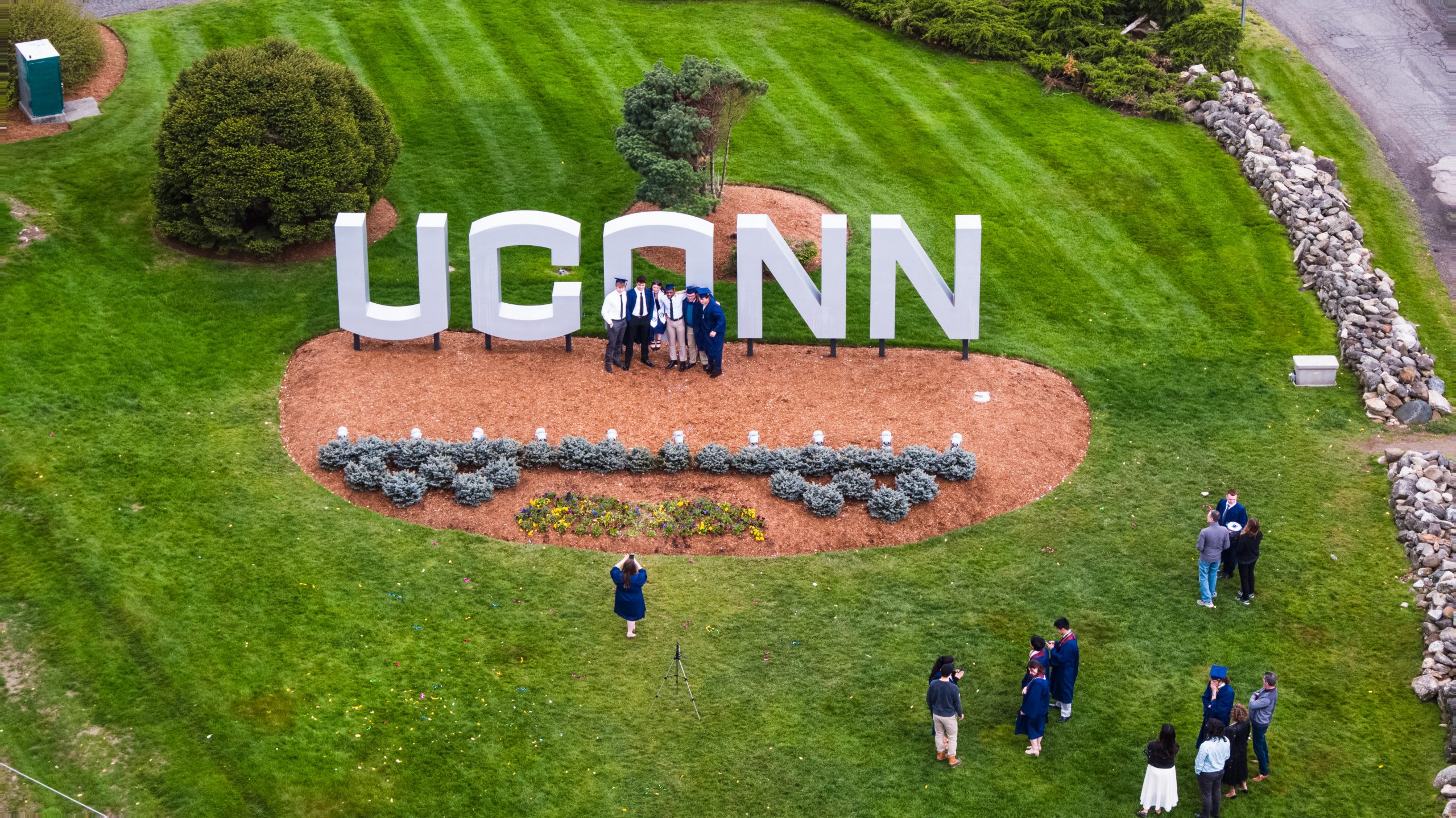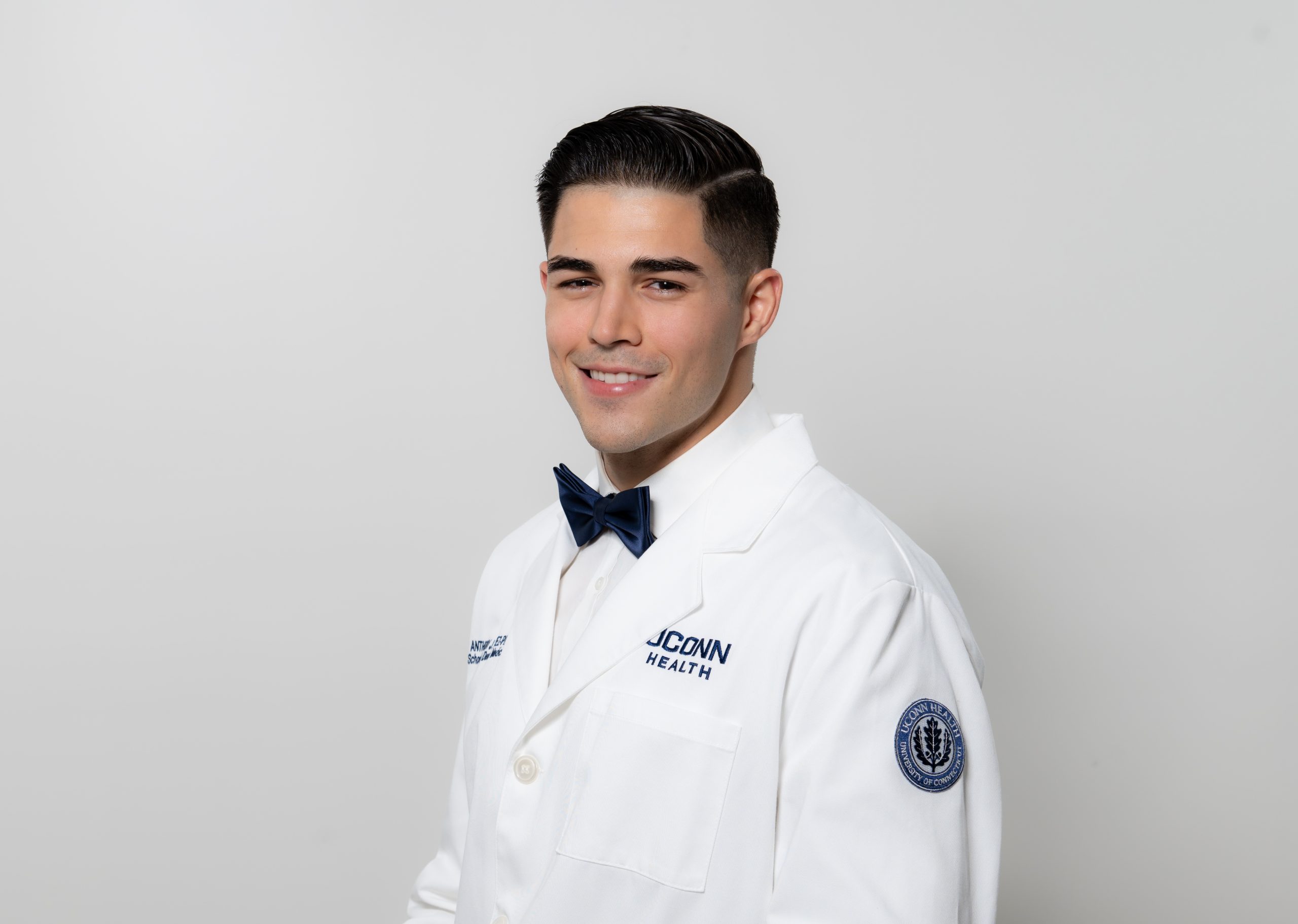Eight early-career researchers on the UConn faculty earned highly selective National Science Foundation Early Career Development (CAREER) Awards this spring.
The five-year, NSF-wide grants support promising faculty early in their academic careers to serve as academic role models in research and education, with the goal of building a firm foundation for a lifetime of leadership in integrating education and research.
Ali Bazzi, UTC Assistant Professor of Engineering Innovation in electrical and computer engineering, received $500,000 over five years for his project, “Hierarchical Control of High-Performance Motor Drives.” Bazzi’s research will be focused on multi-electrical motor drives. Multiple drives or multi-drives open a new dimension of research into optimizing their combined performance metrics through energy savings, cost savings, increased reliability, and enhanced performance. This project will establish foundations for control, fault diagnosis, fault mitigation, and coordination between multi-drives. It will mainly utilize supervisory and switching control concepts at the local and global drive levels. Through this research, a hierarchy of controls will be established.
Xu Chen, assistant professor of mechanical engineering, was awarded $500,0000 over five years for his project, “Adding to the Future: Thermal Modeling, Sparse Sensing, and Integrated Controls for Precise and Reliable Powder Bed Fusion.”
Chen’s research will generate new knowledge critical for enabling high-throughput, quality-assured new Powder Bed Fusion processes to ignite the next industrial revolution. Powder Bed Fusion, in which new material is added by applying and selectively melting a powdered feedstock, is a popular form of additive manufacturing (also known as 3-D printing) for metallic and high-performance polymeric materials. Building on fundamental innovations to model and control the thermal mechanical process, the research will illuminate ways to mitigate quality variations on the fly, and provide new feedback-centric control paradigms to engineer the layered deposition of thermal energy, which is imperative for quality and reproducibility.
In addition to the research aspect, Chen will build new Power Bed Fusion hardware platforms, and open hands-on 3-D printing courses to students and teachers. The impacts of this project will also be disseminated to collaborating universities, expanding the knowledge base in Power Bed Fusion and Additive Manufacturing across the country.
Assistant professor of chemistry Michael Hren will receive $506,340 for his project, titled “Organic Molecular Paleohypsometry: A new approach to quantifying the topographic history of the most rapidly eroding mountain belt on Earth.”
This project will develop a new tool to quantify changes in mountain height over time, based on the isotopic makeup of water and organic matter at different elevations. The method is being tested, refined, and applied to Taiwan, one of the fastest uplifting and eroding regions of the globe. The method will include sampling of modern river waters, soils, and sediments from across the island state. The tool will have implications for geophysics, the oil and gas industry, and studies of surface change. The research will also develop new international collaborations between scientists in the U.S. and Taiwan.
Hren and his colleagues will integrate their work into the Connecticut State Science Standards through the creation of a new STEM education outreach collaboration with Hartford-area STEM magnet schools. Students will visit UConn’s Storrs campus to participate in geoscience research on rivers and soils.
Mohammad Khan, assistant professor of computer science and engineering, received $559,786 over five years for his project, “The Role of Emotion and Social Motives in Communicating Risk: Implications for User Behavior in the Cyber Security Context.” Khan will center his research on risk-mitigation of cyberattacks by designing effective risk communication strategies. Khan notes that many cyberattacks are preventable if end users take precautionary measures, such as keeping systems updated, but they often fail to do so. His proposal builds upon theories of risk communication and self-determination to design new approaches to cybersecurity risk communication and training. The goals are to enable users to assess risks, costs, and benefits consistently and correctly, and to promote task-focused coping responses. By enabling non-expert users to make informed security decisions through raising cybersecurity risk awareness and self-efficacy development, this project directly addresses an increasingly serious threat to economic growth and national security. This project also creates cybersecurity research and training opportunities for graduate and undergraduate students, and members from underrepresented population groups through outreach initiatives.
Assistant professor of marine sciences Kelly Lombardo was awarded $583,701 for her project, titled “The Response of Coastal Squall Line Dynamics to Climate Change.”
The project will quantify the impact of a changing climate on severe thunderstorms over the eastern U.S. coastal region. In particular, the work will emphasize squall lines, or lines of thunderstorms along the edge of a cold front, which can account for a third of all severe weather over the coastal Northeast. The population density of the northeastern U.S. creates a condition for great societal impact from these severe storms. Based on global circulation models that project an increase in U.S. summertime severe storm activity, this work will combine existing climate scenario data and modeling techniques.
In addition to the training of undergraduate and graduate students, Lombardo’s research includes a component of public outreach and education on the role of statistical probability in weather forecasts and climate simulations.
Julian Norato, assistant professor of mechanical engineering, was awarded $500,000 over five years for his project, “Geometric Rules and Cost in Topology Optimization for Efficient Design of Manufacturable and Economically-Viable Structures.” This project will advance fundamental research and formulate a design framework to systematically incorporate geometric design rules and manufacturing cost considerations into the computational design of structures. In particular, the techniques advanced in this project belong to a group of techniques called topology optimization, in which a computer program finds the optimal shape of a structural component or an architected material. This research will enable the conceptual design and optimization of lightweight, high-performance, and economically viable structures with applications across a wide range of engineeering industries. The new design capabilities will have the potential to significantly reduce manufacturing and R&D costs, and increase the economic competitiveness of American manufacturers. Norato was also a recipient of the 2017 ONR Young Investigator Award.
Kristina Wagstrom, Eversource Energy Assistant Professor for Environmental Engineering Education in the chemical and biomolecular engineering department, received $500,000 over five years for her project, “Engaging Communities to Bridge the Local to Regional Gap in Air Pollution Exposure Assessment.” Wagstrom’s research will empower local communities to combat local near-road air quality issues. According to her abstract, more than 19 percent of the U.S. population lives near major roads. This can negatively impact health and lead to lower life expectancy. More specifically, her project will equip communities with crucial information on local air pollution and advocate for solutions.
Wagstrom will achieve those goals by combining air quality measurements, modeling, and community engagement. If successful, the results of this research will transform air pollution exposure assessment modeling and highlight the potential for productive collaborations between researchers and community members to solve air quality problems. Student involvement will lead to an increase in participation of underrepresented groups in engineering; and also her work with local communities will significantly impact understanding in environmental science and air pollution, which will lead to greater pollution policies and improved urban planning.
Assistant professor of mathematics Liang Xiao has been awarded $107,472 for his project on number theory, titled “Slopes of p-adic Modular Forms.”
Xiao’s work will attempt to expand on and potentially solve several mathematical problems surrounding p-adic numbers. These numbers were introduced in the 20th century to capture congruence relationships among integers: two integers are considered “close together” if their difference is divisible by a high power of p, a prime number. This relationship has been proved to be a powerful tool in number theory. Xiao will study several number theory questions related to p-adic numbers, including the potential to solve recent conjectures.
Xiao and his colleagues will also organize Connecticut Summer Schools in Number Theory for advanced undergraduate students and beginning graduate students, to introduce them to topics in contemporary number theory, including the p-adic numbers.



